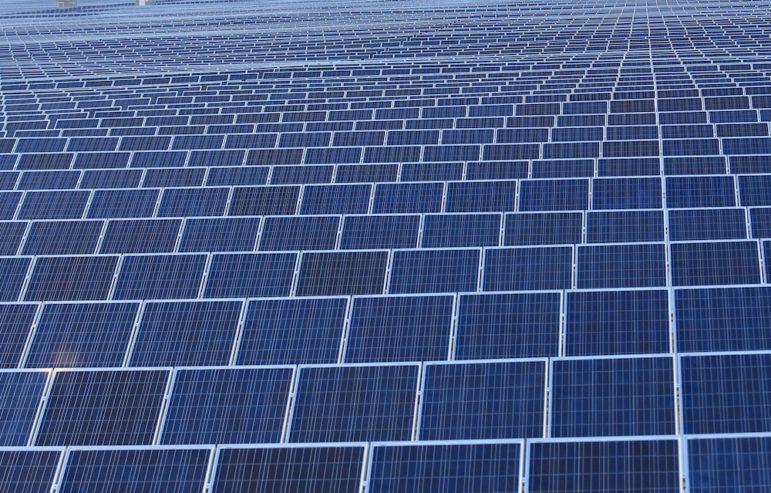
Lujkin8
There are 67 wind and solar projects that have been awarded state contracts, but most are awaiting their permits.COVID-19 poses an immediate health risk to New York—and we are met with unprecedented uncertainty as to just how devastating the virus will be. The economic risk to our state also grows greater every day, and a financial crisis is likely to follow this health crisis.
Amidst the public health and economic crisis, the governor and the New York legislature are negotiating the state’s budget—and working to ensure that it addresses the coronavirus outbreak as well as well- founded economic concerns. One of the proposals that is being discussed is reforms to the state’s renewable energy siting process. While reforming how we site and build renewable energy projects may seem dwarfed by today’s enormous public health issues, they actually go hand-in-hand.
The purpose of this proposal, dubbed the Accelerated Renewables and Community Benefits Act, was originally to address another global crisis, climate change, which was already threatening our way of life. Now – with the jobs and economic stability that renewable energy projects would bring – the measure should be a high priority for the Legislature. In addition to addressing climate change, these projects would improve regional air quality and lower the threat to vulnerable populations who suffer from higher rates of asthma and other respiratory ailments.
There are 67 wind and solar projects that have been awarded state contracts, but most are awaiting their permits. Making the permitting process more efficient and standardized could get these projects under construction, would instantly create hundreds of construction jobs and then additional jobs to operate and maintain the plants, while helping prepare New York’s economy for a green future.
 CityViews are readers’ opinions, not those of City Limits. Add your voice today!
CityViews are readers’ opinions, not those of City Limits. Add your voice today!
If enacted, this proposal would help New York meet its nation-leading climate and renewable energy standards. Just over one-quarter of the state’s electricity comes from renewable sources, but the climate law passed last year requires 70 percent by 2030. There is an urgent need to quickly build more renewable power projects that will both help us reach this goal and create local economic activity and jobs, which are going to be more important than ever.
The renewable siting proposal also addresses New York’s aging electric grid by requiring a study of investment needs on an aggressive timeframe and a directive to the Public Service Commission to figure out a way to get that needed transmission on a path to construction. That too will lead to new economic activity. There will still be environmental review and public participation, but infrastructure improvements that would normally take 15 years to get built could start sooner. We desperately need this clean power and its economic stimulus on a quicker timetable.
The legislature should act to approve renewables siting reform and transmission planning this week before it adjourns. New York City too could move quickly to allow for an increase in renewable energy production and the boost it will bring to our workforce. The city passed a law last year intended to greatly reduce carbon emissions from its large buildings. That’s a good thing. But the city’s legislation should be reexamined to see if it could be improved to align it with the State’s program and stimulate New York’s economy.
First and foremost, government should focus on its real-time response to COVID-19. But we must simultaneously prepare for the next crisis. We can do both. In this week’s state budget negotiations, which are critical to keeping the state operating, the legislature must act to provide easily created – and soon to be vital – economic stimulus by protecting our environment and taking a huge step toward our climate change goals.
Anne Reynolds is the Executive Director of the Alliance for Clean Energy New York.









One thought on “Opinion: COVID is a Reason to Double Down on the Green Economy”
Ms. Reynolds appetite for lobbying on behalf of Big Renewables is shameless. When all efforts should be focused on help those affected by the virus, Ms. Reynolds wants to talk about replacing Article 10 of the Public Service Law, governing siting of large-scale energy projects, with a new Article 23, a budget add-on that is now a distraction. Whether Article 23 is a good idea has been seriously questioned by many upstate governments. Ms. Reynolds wants the cover of the coronavirus to slip Article 23 into the state budget vote. Politics as usual.